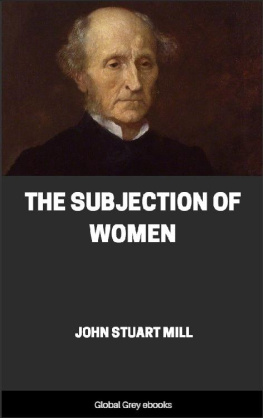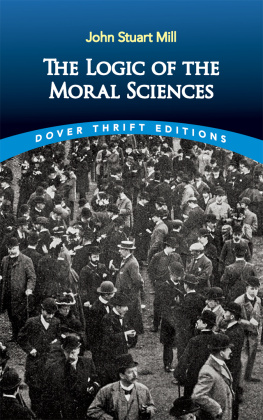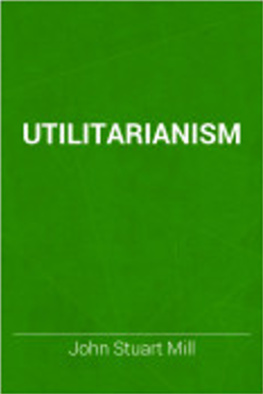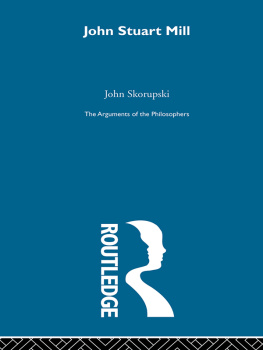Mill John Stuart - A System of Logic
Here you can read online Mill John Stuart - A System of Logic full text of the book (entire story) in english for free. Download pdf and epub, get meaning, cover and reviews about this ebook. genre: Science. Description of the work, (preface) as well as reviews are available. Best literature library LitArk.com created for fans of good reading and offers a wide selection of genres:
Romance novel
Science fiction
Adventure
Detective
Science
History
Home and family
Prose
Art
Politics
Computer
Non-fiction
Religion
Business
Children
Humor
Choose a favorite category and find really read worthwhile books. Enjoy immersion in the world of imagination, feel the emotions of the characters or learn something new for yourself, make an fascinating discovery.
- Book:A System of Logic
- Author:
- Genre:
- Rating:3 / 5
- Favourites:Add to favourites
- Your mark:
- 60
- 1
- 2
- 3
- 4
- 5
A System of Logic: summary, description and annotation
We offer to read an annotation, description, summary or preface (depends on what the author of the book "A System of Logic" wrote himself). If you haven't found the necessary information about the book — write in the comments, we will try to find it.
A System of Logic — read online for free the complete book (whole text) full work
Below is the text of the book, divided by pages. System saving the place of the last page read, allows you to conveniently read the book "A System of Logic" online for free, without having to search again every time where you left off. Put a bookmark, and you can go to the page where you finished reading at any time.
Font size:
Interval:
Bookmark:
The Project Gutenberg EBook of A System Of Logic, Ratiocinative And Inductive (Vol. 1 of 2) by John Stuart Mill
This eBook is for the use of anyone anywhere at no cost and with almost no restrictions whatsoever. You may copy it, give it away or re-use it under the terms of the Project Gutenberg License included with this eBook or online at http://www.gutenberg.org/license
Title: A System Of Logic, Ratiocinative And Inductive (Vol. 1 of 2)
Author: John Stuart Mill
Release Date: August 31, 2008 [Ebook #26495]
Language: English
***START OF THE PROJECT GUTENBERG EBOOK A SYSTEM OF LOGIC, RATIOCINATIVE AND INDUCTIVE (VOL. 1 OF 2)***
A SYSTEM OF LOGIC,
RATIOCINATIVE AND INDUCTIVE,
BEING A CONNECTED VIEW OF THE
PRINCIPLES OF EVIDENCE,
AND THE
METHODS OF SCIENTIFIC INVESTIGATION.
by
JOHN STUART MILL.
In Two Volumes.
Vol. I.
Third Edition.
London:
John Parker, West Strand.
M DCCC LI.
- PREFACE TO THE FIRST EDITION.
- PREFACE TO THE THIRD EDITION.
- INTRODUCTION.
- BOOK I. OF NAMES AND PROPOSITIONS.
- CHAPTER I. OF THE NECESSITY OF COMMENCING WITH AN ANALYSIS OF LANGUAGE.
- CHAPTER II. OF NAMES.
- CHAPTER III. OF THE THINGS DENOTED BY NAMES.
- I. Feelings, or States of Consciousness.
- II. Substances.
- III. Attributes: and, first, Qualities.
- IV. Relations.
- V. Quantity.
- VI. Attributes Concluded.
- VII. General Results.
- CHAPTER IV. OF PROPOSITIONS.
- CHAPTER V. OF THE IMPORT OF PROPOSITIONS.
- CHAPTER VI. OF PROPOSITIONS MERELY VERBAL.
- CHAPTER VII. OF THE NATURE OF CLASSIFICATION, AND THE FIVE PREDICABLES.
- CHAPTER VIII. OF DEFINITION.
- BOOK II. OF REASONING.
- CHAPTER I. OF INFERENCE, OR REASONING, IN GENERAL.
- CHAPTER II. OF RATIOCINATION, OR SYLLOGISM.
- CHAPTER III. OF THE FUNCTIONS, AND LOGICAL VALUE, OF THE SYLLOGISM.
- CHAPTER IV. OF TRAINS OF REASONING, AND DEDUCTIVE SCIENCES.
- CHAPTER V. OF DEMONSTRATION, AND NECESSARY TRUTHS.
- CHAPTER VI. THE SAME SUBJECT CONTINUED.
- BOOK III. OF INDUCTION.
- CHAPTER I. PRELIMINARY OBSERVATIONS ON INDUCTION IN GENERAL.
- CHAPTER II. OF INDUCTIONS IMPROPERLY SO CALLED.
- CHAPTER III. OF THE GROUND OF INDUCTION.
- CHAPTER IV. OF LAWS OF NATURE.
- CHAPTER V. OF THE LAW OF UNIVERSAL CAUSATION.
- CHAPTER VI. OF THE COMPOSITION OF CAUSES.
- CHAPTER VII. OF OBSERVATION AND EXPERIMENT.
- CHAPTER VIII. OF THE FOUR METHODS OF EXPERIMENTAL INQUIRY.
- CHAPTER IX. MISCELLANEOUS EXAMPLES OF THE FOUR METHODS.
- CHAPTER X. OF PLURALITY OF CAUSES; AND OF THE INTERMIXTURE OF EFFECTS.
- CHAPTER XI. OF THE DEDUCTIVE METHOD.
- CHAPTER XII. OF THE EXPLANATION OF LAWS OF NATURE.
- CHAPTER XIII. MISCELLANEOUS EXAMPLES OF THE EXPLANATION OF LAWS OF NATURE.
- Footnotes
This book makes no pretence of giving to the world a new theory of the intellectual operations. Its claim to attention, if it possess any, is grounded on the fact that it is an attempt not to supersede, but to embody and systematize, the best ideas which have been either promulgated on its subject by speculative writers, or conformed to by accurate thinkers in their scientific inquiries.
To cement together the detached fragments of a subject, never yet treated as a whole; to harmonize the true portions of discordant theories, by supplying the links of thought necessary to connect them, and by disentangling them from the errors with which they are always more or less interwoven; must necessarily require a considerable amount of original speculation. To other originality than this, the present work lays no claim. In the existing state of the cultivation of the sciences, there would be a very strong presumption against any one who should imagine that he had effected a revolution in the theory of the investigation of truth, or added any fundamentally new process to the practice of it. The improvement which remains to be effected in the methods of philosophizing (and the author believes that they have much [pg iv] need of improvement) can only consist in performing, more systematically and accurately, operations with which, at least in their elementary form, the human intellect in some one or other of its employments is already familiar.
In the portion of the work which treats of Ratiocination, the author has not deemed it necessary to enter into technical details which may be obtained in so perfect a shape from the existing treatises on what is termed the Logic of the Schools. In the contempt entertained by many modern philosophers for the syllogistic art, it will be seen that he by no means participates; although the scientific theory on which its defence is usually rested appears to him erroneous: and the view which he has suggested of the nature and functions of the Syllogism may, perhaps, afford the means of conciliating the principles of the art with as much as is well grounded in the doctrines and objections of its assailants.
The same abstinence from details could not be observed in the First Book, on Names and Propositions; because many useful principles and distinctions which were contained in the old Logic, have been gradually omitted from the writings of its later teachers; and it appeared desirable both to revive these, and to reform and rationalize the philosophical foundation on which they stood. The earlier chapters of this preliminary Book will consequently appear, to some readers, needlessly elementary and scholastic. But those who know in what darkness the nature of our knowledge, and of the processes by which it is [pg v] obtained, is often involved by a confused apprehension of the import of the different classes of Words and Assertions, will not regard these discussions as either frivolous, or irrelevant to the topics considered in the later Books.
On the subject of Induction, the task to be performed was that of generalizing the modes of investigating truth and estimating evidence, by which so many important and recondite laws of nature have, in the various sciences, been aggregated to the stock of human knowledge. That this is not a task free from difficulty may be presumed from the fact, that even at a very recent period, eminent writers (among whom it is sufficient to name Archbishop Whately, and the author of a celebrated article on Bacon in the Edinburgh Review ) have not scrupled to pronounce it impossible. The author has endeavoured to combat their theory in the manner in which Diogenes confuted the sceptical reasonings against the possibility of motion; remembering that Diogenes' argument would have been equally conclusive, though his individual perambulations might not have extended beyond the circuit of his own tub.
Whatever may be the value of what the author [pg vi] has succeeded in effecting on this branch of his subject, it is a duty to acknowledge that for much of it he has been indebted to several important treatises, partly historical and partly philosophical, on the generalities and processes of physical science, which have been published within the last few years. To these treatises, and to their authors, he has endeavoured to do justice in the body of the work. But as with one of these writers, Dr. Whewell, he has occasion frequently to express differences of opinion, it is more particularly incumbent on him in this place to declare, that without the aid derived from the facts and ideas contained in that gentleman's History of the Inductive Sciences , the corresponding portion of this work would probably not have been written.
The concluding Book is an attempt to contribute towards the solution of a question, which the decay of old opinions, and the agitation that disturbs European society to its inmost depths, render as important in the present day to the practical interests of human life, as it must at all times be to the completeness of our speculative knowledge: viz. Whether moral and social phenomena are really exceptions to the general certainty and uniformity of the course of nature; and how far the methods, by which so many of the laws of the physical world have been numbered among truths irrevocably acquired and universally assented to, can be made instrumental to the formation of a similar body of received doctrine in moral and political science.
Font size:
Interval:
Bookmark:
Similar books «A System of Logic»
Look at similar books to A System of Logic. We have selected literature similar in name and meaning in the hope of providing readers with more options to find new, interesting, not yet read works.
Discussion, reviews of the book A System of Logic and just readers' own opinions. Leave your comments, write what you think about the work, its meaning or the main characters. Specify what exactly you liked and what you didn't like, and why you think so.


















